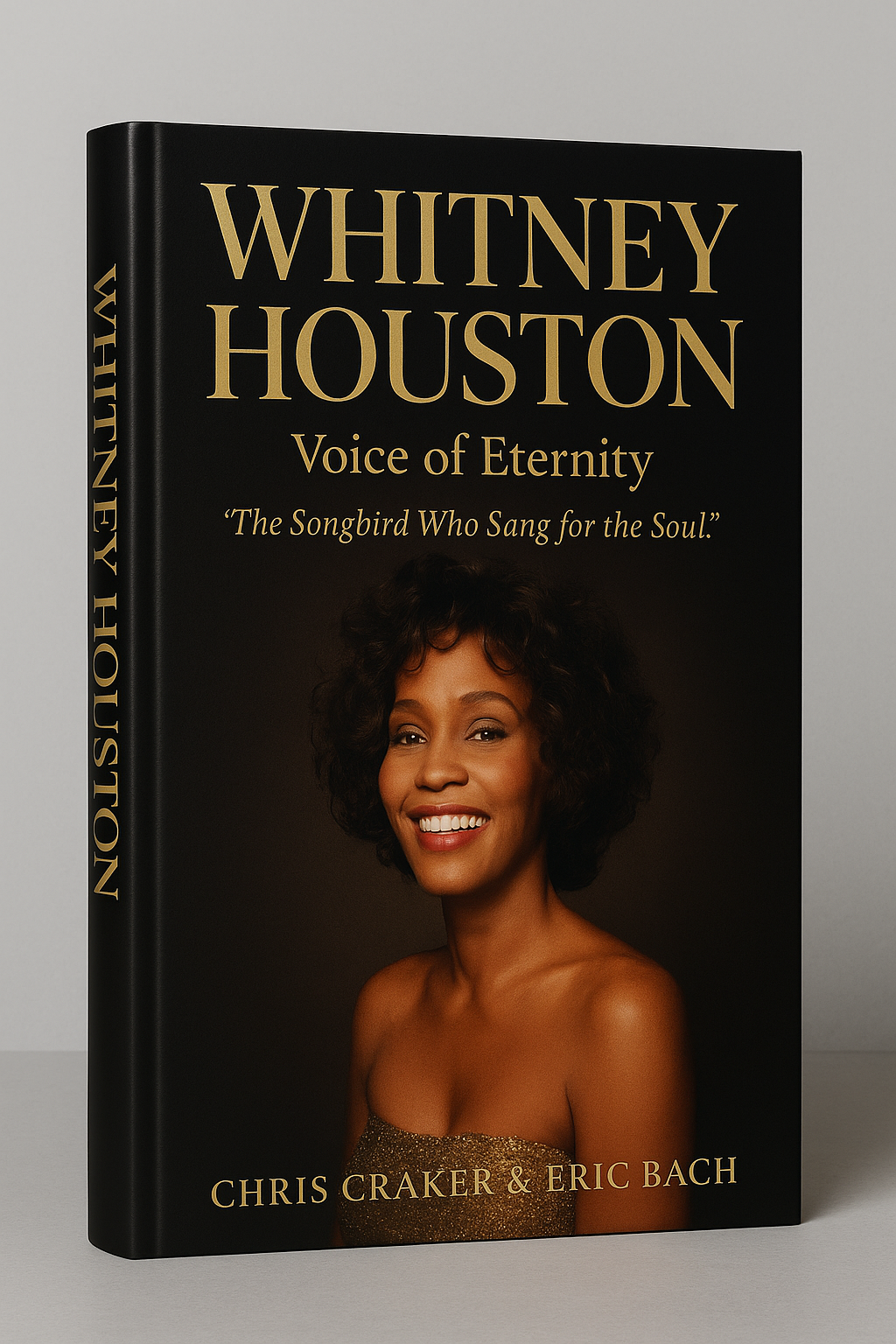
Whitney Houston: Voice of Eternity
Chris Craker & Eric Bach
She was more than a singer. She was the sound of love on a rainy night, the echo of hope in broken hearts, the flame that lit lonely rooms. Whitney’s voice was not bound by stage or studio — it reached into eternity, stitching together joy and sorrow, faith and fire, humanity and heaven.
From the very first note she sang, the world knew: this was not just another voice. Whitney Elizabeth Houston was born in Newark, New Jersey, in 1963, into a home filled with music and spirit. The daughter of gospel singer Cissy Houston and cousin of the legendary Dionne Warwick, her destiny was written in song. By age eleven she was singing in her church choir; by her teenage years she was modeling on magazine covers; and by twenty-two she had released a debut album that would change the course of music forever.
That debut, Whitney Houston (1985), gave us “Greatest Love of All” and “How Will I Know,” and the world stopped to listen. Her follow-up albums broke records again and again, making her the first woman in history to debut at No. 1 on the Billboard chart. With seven consecutive No. 1 hits, she surpassed the Beatles and Elvis Presley, etching her name into eternity. Yet behind every statistic and trophy, there was something greater — a voice that lifted people out of pain, a voice that taught us to believe, a voice that sounded like both prayer and celebration.
Whitney’s performances were not merely concerts; they were experiences of the soul. In 1991, when she sang the National Anthem at the Super Bowl during the Gulf War, her rendition became a national symbol of unity and hope. When she starred in The Bodyguard and released “I Will Always Love You,” she gave the world not just a love song, but an anthem of eternal devotion, one that still brings tears decades later. Her songs traveled beyond borders and languages, reminding us that music is the universal language of the heart.
But Whitney was more than her chart-topping success. She was joy in motion — a radiant smile, a laugh that lit up rooms, a spirit that believed in love, faith, and second chances. Her story was human: full of triumphs, trials, vulnerabilities, and comebacks. And that humanity is exactly why she remains unforgettable. She sang not as a distant star, but as one of us — someone who knew joy and pain, who turned struggle into song.
Her life was not without storms, but her legacy is the rainbow after the rain. Whitney Houston sold over 200 million records worldwide, won six Grammy Awards, 22 American Music Awards, an Emmy, and countless honors — yet the true measure of her greatness was not in awards, but in the millions of people who still feel her presence every time her voice soars.
Today, Whitney’s music still heals, uplifts, and inspires. She is the eternal reminder that greatness is not perfection, but passion. Not the absence of hardship, but the courage to keep singing anyway.
Whitney Houston is not just part of history — she is the melody of eternity. And every time we hear her voice, we are reminded that love is the greatest song of all.